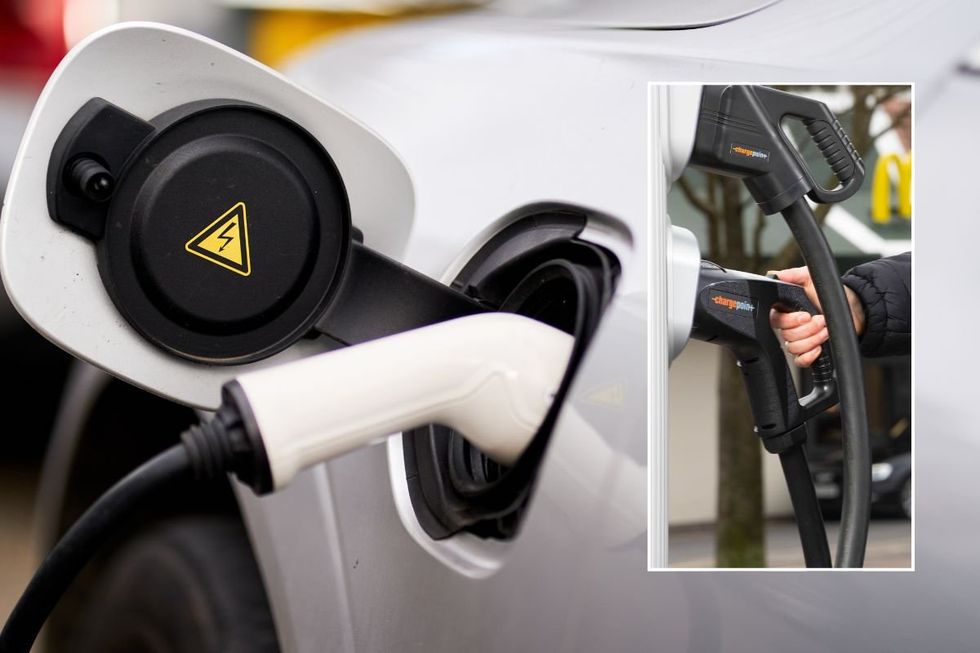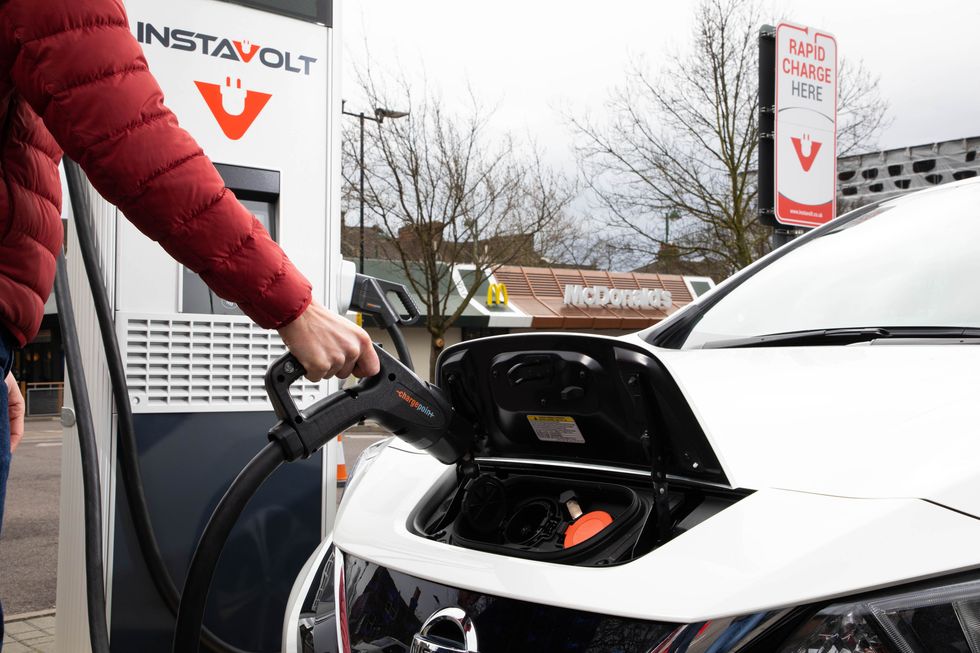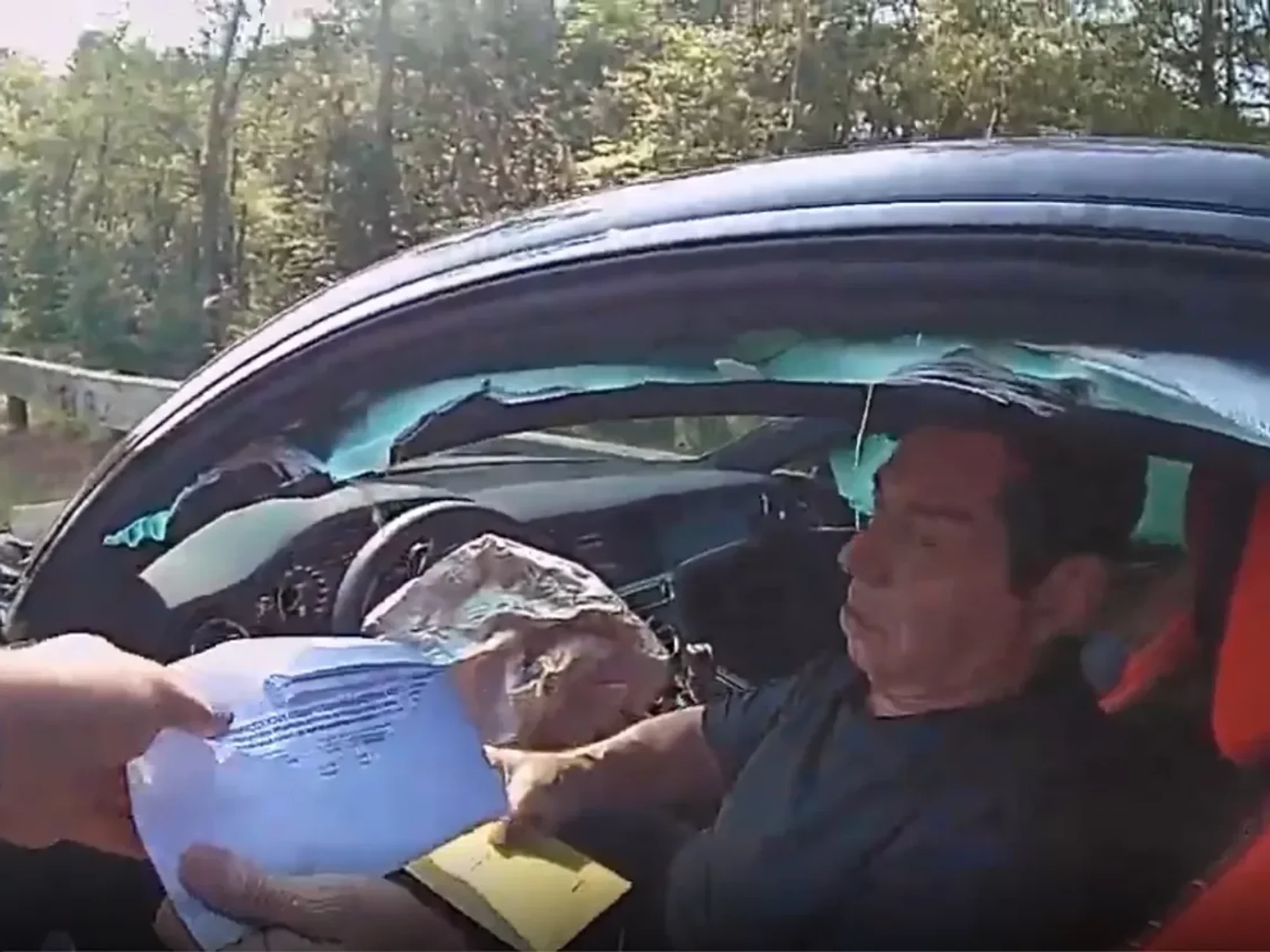Electric car chargers fitted with GPS trackers to fend off criminals stealing cables for copper worth £15

WATCH: The Department for Transport announces new measures to make it cheaper to install EV chargers
|DFT

Incidents suggest the issue is becoming more widespread around the UK
Don't Miss
Most Read
One of the UK's leading electric vehicle chargepoint operators is taking drastic measures to deter thieves from targeting charging cables.
Instavolt has resorted to installing GPS tracking technology into its chargers after criminals attempted to steal the chargers to extract the valuable copper from inside.
Over the last two years, Instavolt, which is the UK's biggest provider of rapid and ultra-rapid chargers, said almost 1,000 of its stations had been targeted by criminals.
Chargepoint operators have taken matters into their own hands in recent years, with the installation of extra CCTV cameras, a security presence and thicker cables.
TRENDING
Stories
Videos
Your Say
Instavolt said there was only around £25 worth of copper inside a charging cable, but that it costs around £1,000 for the operator to repair a damaged station.
Data from Zapmap shows that Instvolt has 2,103 rapid or ultra-rapid chargers around the UK, narrowly beating out Tesla's Supercharger network, which has 2,054 chargers.
When taking into account chargers of all speeds, Instavolt places in 10th place among all chargepoint operators, although it beats the likes of Tesla and Osprey.
Previously, Instavolt warned that 13 of its sites across the West Midlands had been targeted a staggering 33 times by criminals looking to steal copper.

EV charging operators are taking action to fend off criminals
|PA
It is estimated that copper theft has cost the brand around £410,000 over the last two years, its CEO, Delvin Lane, told the BBC.
Instavolt is rolling out new charging cables which contain GPS trackers to track down criminals who target the EV chargers.
The trackers will trigger an alert when a cable leaves a specified area, allowing the police to track the location of criminals.
It added: "This level of monitoring and responsiveness marks a step change in how the industry can protect vital infrastructure, offering not only a deterrent but also rapid recovery when thefts take place."
LATEST DEVELOPMENTS:
- Petrol and diesel ban could have major impact on UK car production amid slow uptake of electric vehicles
- British drivers issued urgent warning of 'secret 20mph speed traps' with threat of fines and penalty points
- Popular cars could disappear from UK roads within years as electric vehicle revolution looms
The Telegraph reported that Instavolt had also added a "Kevlar sheath" to the cables to make them more difficult to cut through.
Some cables are also coated in Smart Water tracking technology, which has become a common technique to crack down on thefts of catalytic converters, which contain precious metals.
Lighting has also become a common option for chargepoint operators to install, as it can deter some opportunistic thieves from making off with the cables.
Instavolt said: "The damage goes beyond inconvenience; every stolen cable represents lost investment, downtime and slowing the road to net zero targets."

Instavolt said it had been particularly impacted by charging thefts
| PAAsif Ghafoor, CEO of Be.EV, explained to the University of Bradford that criminals targeting charging cables were "costing the industry millions".
He added that it was also "inconveniencing hard-working people" who want to use the public charging network, especially if they are unable to charge at home.
Mr Ghafoor continued, saying: "I have no idea why it is appealing to thieves. While the cables cost thousands of pounds to replace, the small amount of copper inside is only worth £10 to £15 and comes with the threat of being convicted and the risk to their own lives.
"Meanwhile, EV drivers face the prospect of being left stranded at their charging point. Monitoring means the sites are safe, but it's sad that customers turn up to charge their vehicle and can't, having to go elsewhere instead."










